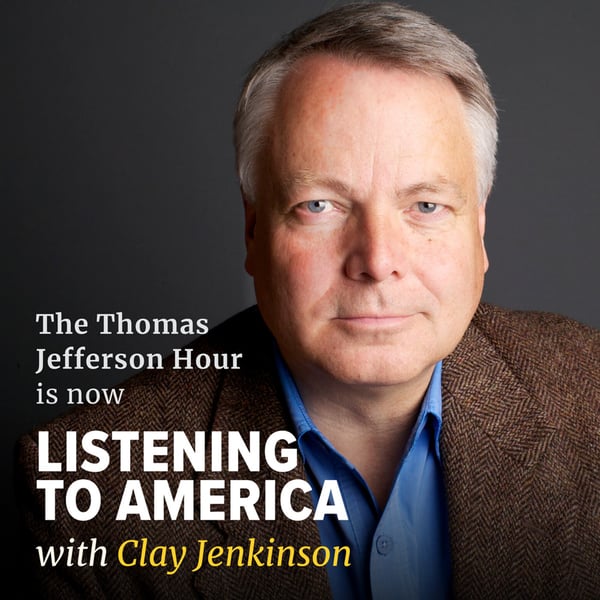#1565 Ten Things about Writing a Book
Listening to America
Listening to America
4.6 • 1.1K Ratings
🗓️ 18 September 2023
⏱️ 50 minutes
🧾️ Download transcript
Summary
This week, Clay Jenkinson’s conversation with Dr. Lindsay Chervinsky about the agony and ecstasy of writing a book. Among the topics: Do you do all the research before you start to write or just begin and research as you go along? How do you pace yourself and not burn out? How do you know if the book is any good? What do you do to power through the gumption traps—writer’s block, the distracting dramas of real life, other professional commitments, the days or weeks when you just don’t feel like writing, or conclude that you have nothing important to say?
Lindsay’s second book is tentatively titled Making the Presidency, about the administration of the second President John Adams. Clay has authored more than a dozen titles.
Transcript
Click on a timestamp to play from that location
| 0:00.0 | Hello everyone and welcome to this week's episode of Listening to America with Clay |
| 0:08.7 | Jenkinson. Across from me, my good friend, Dr. Lindsay Trevinsky, Lindsay, congratulations. |
| 0:15.2 | You finished your second book. Thank you. Still have some edits and a few rounds of |
| 0:20.9 | page proofs and copy edits and all those things, but the main substantive work is complete |
| 0:26.5 | and that is very exciting. This book is about Mr. John Adams. It is, although it's actually |
| 0:31.3 | really, you know, one of the one of the questions that was posed to me as I was writing this book |
| 0:35.3 | is, is this a book about John Adams as president or is this a book about the presidency through |
| 0:39.8 | the lens of the John Adams administration? And it's really a book about the presidency |
| 0:44.8 | because one of my not to give too much away, but you know, one of the things that I came |
| 0:50.0 | to realize as I was transitioning from Washington to Adams is that Washington was so unique |
| 0:55.4 | in his Washingtonness that no one else was going to have that same experience. And so whoever |
| 1:01.9 | came second was almost the one who was actually creating the experience for everyone that |
| 1:07.8 | would follow. And so that second person is really quite essential to determining what the presidency |
| 1:14.2 | experience would be once he left. George Washington becomes the first president. The Constitution |
| 1:20.0 | is not particularly explicit on just what that is going to mean. So he creates a set of |
| 1:25.8 | tentative norms and he requires adamantly after two terms. Suddenly the heir apparent, as he |
| 1:33.0 | called himself, John Adams becomes the second president of the United States. And I think you're |
| 1:38.0 | saying he has to decide whether he will continue and deepen those norms or break with them in a |
| 1:44.5 | different direction. It's the second presidency that will determine how deeply embedded these |
| 1:50.9 | norms go. Yes. And also to what extent it was going to be possible for anyone else to uphold |
| 1:56.9 | those norms, because even though Washington was criticized at the end of his administration, |
| 2:03.0 | he was so unparalleled in his stature that he wasn't really questioned in the way that most |
... |
Please login to see the full transcript.
Disclaimer: The podcast and artwork embedded on this page are from Listening to America, and are the property of its owner and not affiliated with or endorsed by Tapesearch.
Generated transcripts are the property of Listening to America and are distributed freely under the Fair Use doctrine. Transcripts generated by Tapesearch are not guaranteed to be accurate.
Copyright © Tapesearch 2025.

